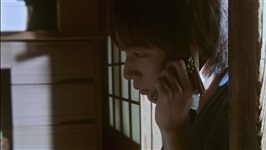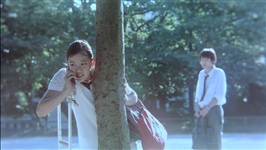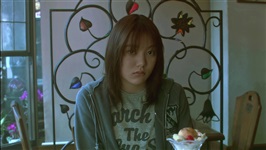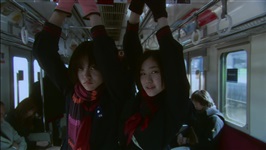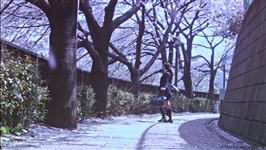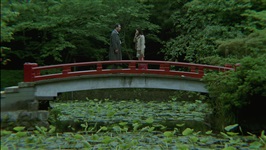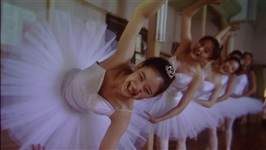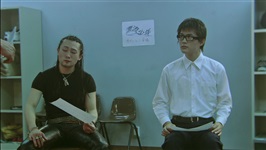Hana and Alice (2004)
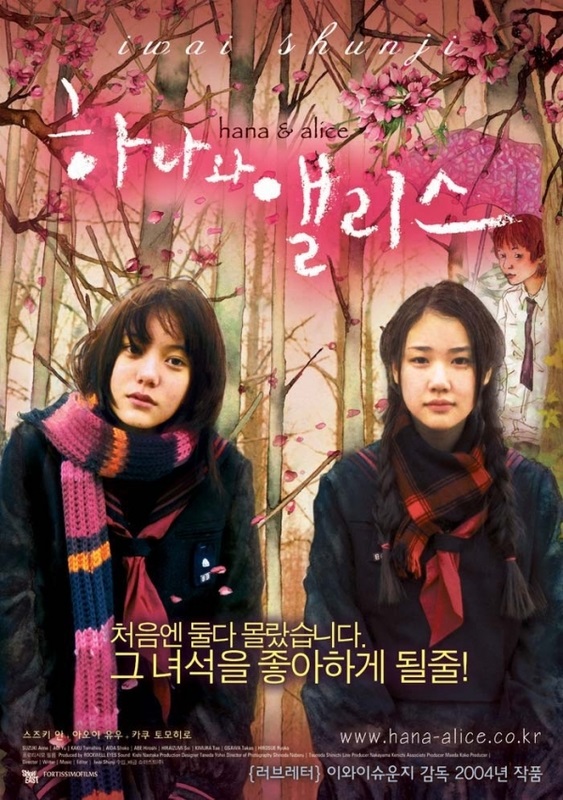
Hana and Alice are best friends growing up, but after moving from middle school to high school they start to drift apart. Hana develops a crush on a boy in the year above, and after he bumps his head walking home one day she tries to convince him that she is his girlfriend, and if he doesn't remember her it must be because he has amnesia. She ropes Alice in to corroborate the story by pretending to be his ex-girlfriend, also now forgotten.
Whilst this is the story that ties the film together, many or most scenes are only tangentially related to it. The film shows slices of life that gradually develop the characters of Hana and Alice as they grow up and grow apart.
The film is shot in a loose, naturalistic way with many scenes feeling at least partially improvised. It hinges entirely on the performances of its two lead actresses, Anne Suzuki and Yu Aoi, both of whom inhabit their characters fully. Both girls are a little unsure of themselves, but Alice is more free-spirited whilst Hana obviously has some issues.
We never really get to see what's going on in Tomohiro Kaku's head as he's a bit of a dreamer, not altogether present in the real world - which means he accepts the news about his amnesia more readily than might be expected, and leaves a lot of room for Hana to project her fantasies on to him.
Shunji Iwai's Swallowtail Butterfly is one of my all-time favourite films, and Love Letter is somewhere in the upper echelons as well. I wasn't entirely sure what I thought of All About Lily Chou-Chou when it came out, and that's probably part of the reason it's taken me 15 years or so to decide I was in the right mood to watch HANA & ALICE.
I think that was the right decision - I'm not sure I'd have enjoyed it as much back then, as it's much closer in style to LILY CHOU-CHOU (which is definitely due for a rewatch), and I needed a few more years under my belt to be ready for it.
As you would expect from Iwai the film is beautifully lensed, with a vivid, slightly over-exposed look that effectively evokes the heightened emotions and sensitivities of that stage of life where we are starting to learn who we are and how we fit into the world.
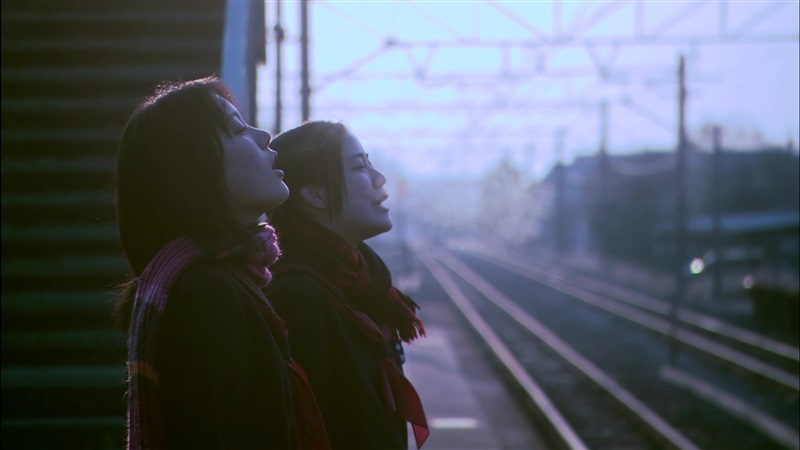
Iwai apparently composed the soundtrack himself, a sweeping score heavy on piano and strings that is undeniably sentimental and could never be accused of understatement, but which effectively contributes to the film's slight aura of hyper-reality.
Of course you know that Iwai is going to deliver an emotional sucker punch at some point, and since there's only really one way the situation is going to end you have a fair idea where things are going. It's a film about a journey though, not a destination, and as we get to know the girls we can't help but be invested in their stories.
I don't think it's a spoiler to say that things basically work out OK - this isn't a film that's out to break our hearts, the experience Shunji Iwai wants us to have is a fond nostalgia for more innocent times and the simple pleasures of childhood friendship.
Crew
| Director | |
|---|---|
| Writer | |
| Producer | |
| Cinematographer |
